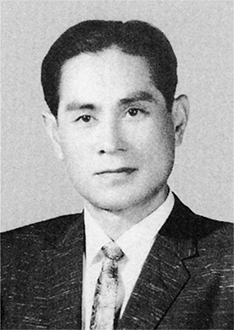The Structure and Functions of the Physical Self
The physical self consists of the dual characteristics of the physical mind (subject partner) and the physical body (object partner). The physical mind directs the physical body to maintain the functions necessary for its survival, protection and reproduction.
Instinct, for example, is an aspect of an animal’s physical mind. For the physical self to grow in good health, it must have proper nourishment. It must absorb air and sunlight, which are intangible, yang types of nourishment, and must eat and drink food and water, which are tangible, yin types of nourishment. The body has give and take with this nourishment through its digestive and circulatory systems.
Good or evil in the conduct of the physical self is the main determinant of whether the spirit self becomes good or evil. This is because the physical self provides a certain element, which we call the vitality element, to the spirit self.
In our everyday experience, our mind rejoices when our physical self performs good deeds but feels anxiety after evil conduct. This is because vitality elements, which can be good or evil according to the deeds of the physical self, are infused into our spirit self.
The Structure and Functions of the Spirit Self
Our spirit self, or spirit, is a substantial yet incorporeal reality which can be apprehended only through the spiritual senses. It is the subject partner to our physical self.
Our spirit can communicate directly with God and is meant to govern the incorporeal world, including the angels. In appearance our spirit self matches our physical self. After we shed the physical self, we enter the spirit world and live there for eternity. The reason we desire an eternal life is because our innermost self is the spirit self which has an eternal nature.
Our spirit self consists of the dual characteristics of spirit mind (subject partner) and spirit body (object partner). The spirit mind is the center of the spirit self, and it is where God dwells. The spirit grows through give and take action between two types of nourishment: life elements of a yang type that come from God, and vitality elements of a yin type that come from the physical self.
The spirit self not only receives vitality elements from the physical self; it also returns an element to the physical self which we call the living spirit element. When people receive grace from a heavenly spirit, they undergo many positive changes in their physical self; they feel infinite joy and new strength welling up in them which can even drive away illness. Such phenomena occur because the physical self receives living spirit elements from the spirit self.
The spirit can grow only while it abides in the flesh. Thus, the relationship between the physical self and the spirit self is similar to that between a tree and its fruit. When the physical mind obeys the spirit mind and the physical self acts according to the good purpose of the spirit mind, the physical self receives living spirit elements from the spirit self and becomes wholesome. In return, the physical self provides good vitality elements to the spirit self, which enable the spirit self to grow properly in the direction of goodness.
Truth illuminates the innermost desires of the spirit mind. A person must first comprehend his spirit mind’s deepest desire through the truth and then put this knowledge into action to fulfill his responsibility. Only then do the living spirit elements and vitality elements reciprocate within him, enabling him to progress toward goodness.
The living spirit element and the vitality element have the relationship of internal nature and external form. Because all people have living spirit elements ever active within themselves, even an evil person’s original mind inclines toward goodness.
However, unless he actually leads a life of goodness, the living spirit elements cannot engage in proper give and take with the vitality elements, nor can they be infused into his physical self to make it wholesome.
It can be inferred from the above that the spirit self can attain perfection only during a person’s earthly life. The spirit mind guides the spirit self as it grows in the soil of the physical self. The growth of the spirit self toward perfection progresses through the three orderly stages ordained by the Principle of Creation.
A spirit in the formation stage of life is called a form spirit; in the growth stage, a life spirit; and in the completion stage, a divine spirit.
A spirit fully matures as a divine spirit when the person’s spirit self and physical self unite through perfect give and take action centered on God and form the four position foundation. A divine spirit can accurately feel and perceive every reality in the spirit world. As these spiritual realities resonate through the body and manifest themselves as physiological phenomena, they can be recognized through the five physical senses.
People of divine spirit, who thus resonate with the spirit world, build the Kingdom of Heaven on earth. When they shed their physical bodies, they will make a smooth transition into the Kingdom of Heaven in the spirit world. For this reason, the Kingdom of Heaven in heaven will be realized only after the Kingdom of Heaven on earth has been established.
All the sensibilities of a spirit are cultivated through the reciprocal relationship with the physical self during earthly life. Therefore, only when a person reaches perfection and is totally immersed in the love of God while on earth can he fully delight in the love of God as a spirit after his death.
All the qualities of the spirit self are developed while it abides in the physical self: Sinful conduct during earthly life aggravates evil and ugliness in the spirit of a fallen person, while the redemption of sins granted during earthly life opens the way for his spirit to become good. This was the reason Jesus had to come to the earth in the flesh to save sinful humanity.
We must lead a good life while we are on the earth. Jesus gave the keys to the Kingdom of Heaven to Peter, who remained on the earth, (Matt. 16:19) and said, “whatever you bind on earth shall be bound in heaven, and whatever you loose on earth shall be loosed in heaven,” (Matt. 18:18) because the primary objective of the providence of restoration must be carried out on the earth.
It is not God who decides whether a person’s spirit enters heaven or hell upon his death; it is decided by the spirit himself. Humans are created so that once they reach perfection they will fully breathe the love of God. Those who committed sinful deeds while on earth become crippled spirits who are incapable of fully breathing in the love of God. They find it agonizing to stand before God, the center of true love. Of their own will, they choose to dwell in hell, far removed from the love of God.
Since the human spirit can grow only in the soil of the physical self, the multiplication of human spirits takes place at the same time that the multiplication of physical selves occurs: during earthly life.
The Spirit Mind, the Physical Mind and Their Relationship in the Human Mind
The human mind consists of the spirit mind and physical mind. The relationship between these two minds is like that between internal nature and external form.
When they become one through give and take action with God as their center, they form a united functioning entity which guides the spirit self and physical self to become harmonious and progress toward the purpose of creation. This united entity is the mind of a human being. The conscience is that faculty of the human mind which, by virtue of its inborn nature, always directs us toward what we think is good.
However, due to the Fall, human beings have become ignorant of God and thus ignorant of the absolute standard of goodness. For this reason, we are unable to set the proper standard of judgment for our conscience. As the standard of goodness varies, the standard of our conscience also fluctuates; this causes frequent contention even among those who advocate a conscientious life. The original mind is that faculty of the human mind which pursues absolute goodness. It relates to the conscience as internal nature to external form.
A person’s conscience directs him to pursue goodness according to the standard which he has set up in ignorance, even though it may differ from the original standard.
However, the original mind, being sensitive to the proper direction, repels this faulty standard and works to correct the conscience. As long as our spirit mind and physical mind are under the bondage of Satan, the functioning entity they form through their give and take action is called the evil mind. The evil mind continually drives people to do evil.
Our original mind and conscience direct us to repel the evil mind. They guide us in desperate efforts to reject evil desires and cling to goodness by breaking our ties with Satan and turning to face God.




